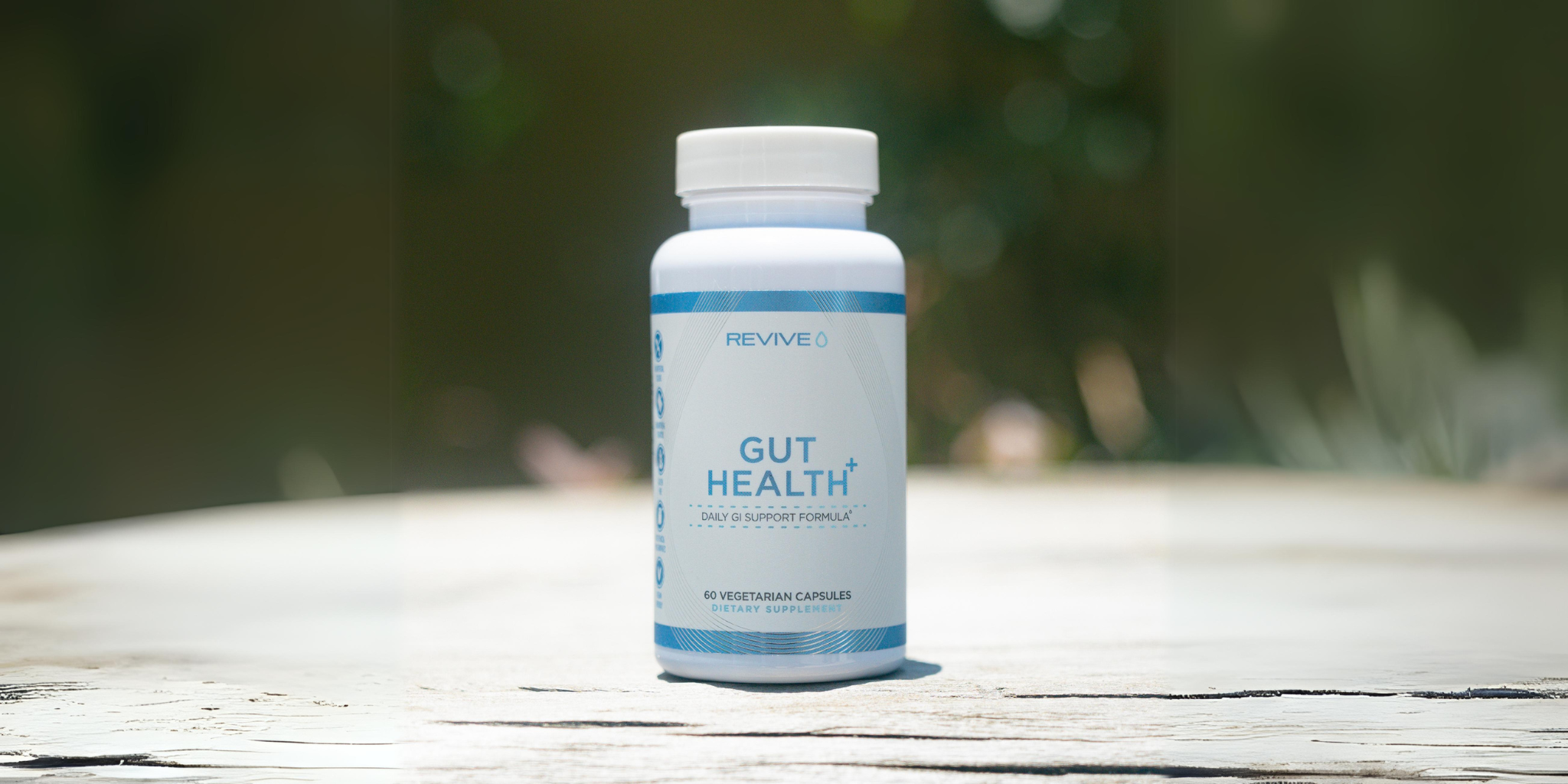Are Beans Hard to Digest? (And How to Make it Easier)
Beans are often considered a staple in various diets due to their nutritional benefits, but many people hesitate to include them in their meals because they fear the digestive discomfort they might cause. The question of whether are beans hard to digest commonly arises because while beans are nutritious, they are also infamous for causing gas and bloating. This is primarily due to their high fiber and complex carbohydrate content, which can be challenging for some people's digestive systems to break down.
In this article, we'll explore beans' nutritional profile and explore why they can cause digestive issues. Additionally, we will provide practical tips on incorporating beans into your diet while minimizing discomfort so you can enjoy their health benefits without the notorious digestive woes. By understanding the nutritional benefits and the digestive aspects of beans, you can make more informed choices about including them in your diet.

Nutritional Profile of Beans
Beans are a staple in diets worldwide due to their high nutritional value and versatility. They belong to the legume family, which includes a variety of types such as kidney beans, black beans, pinto beans, and navy beans, each offering unique benefits to health-conscious individuals, including gym-goers and bodybuilders.
Firstly, beans are an excellent source of protein, which is crucial for muscle repair and growth. This makes them particularly attractive to those engaged in regular physical activity. They're not only rich in protein but also low in fat and contain no cholesterol, making them a heart-healthy choice.
Beyond protein, beans are renowned for their fiber content. High fiber aids in digestion and can help regulate blood sugar levels, contributing to prolonged energy and overall satiety, which is essential for weight management. The soluble fiber found in beans can also help lower blood cholesterol levels.
Beans are also packed with essential nutrients; they are a good source of iron, potassium, selenium, and magnesium. These minerals are vital for various bodily functions, including oxygen transport, enzyme function, and nerve signaling. Furthermore, beans provide B vitamins like folate, which plays a key role in DNA synthesis and repair.
Antioxidants are another significant component of beans. These compounds combat oxidative stress and reduce inflammation, which is crucial for overall health and particularly beneficial for those involved in strenuous workouts, as they can help speed up recovery times.
Despite their many health benefits, beans can sometimes cause digestive discomfort, leading many to wonder: are beans hard to digest? This is typically due to the presence of oligosaccharides, a type of carbohydrate that can lead to gas and bloating. However, this can often be mitigated by proper preparation methods such as soaking and rinsing beans before cooking, which helps to reduce these indigestible carbohydrates.
Digestion: Are Beans Hard to Digest?
Beans are a rich source of both soluble and insoluble fibers, making them beneficial but sometimes challenging for the digestive system. The complex carbohydrates in beans, particularly oligosaccharides, are not fully broken down in the stomach or small intestine. Instead, these carbohydrates pass through to the large intestine, where your gut bacteria ferment them. This fermentation process can cause gas and bloating, which is why some people might find beans hard to digest.
The fiber content in beans, while being a cause of digestive issues for some, is also what makes them particularly healthy. Fiber aids in bowel regularity and helps to manage blood sugar levels, contributing to satiety and potentially aiding in weight management. Moreover, the fermentation of fiber in the large intestine produces short-chain fatty acids that are beneficial for colon health and may help in preventing colon cancer.
However, the digestion of beans can be improved through proper preparation. Soaking beans before cooking can help to reduce the amount of indigestible carbohydrates that cause gas. Cooking beans thoroughly is also crucial, as it helps to break down some of the complex sugars and makes them easier to digest. Cooling cooked beans can also increase their resistant starch content, which is digested more slowly and can lead to less gas production compared to other starchy foods.
Despite these challenges, beans are a nutritious part of the diet that offers multiple health benefits. If you are introducing beans into your diet, it's recommended to start with small amounts and gradually increase the intake to allow the digestive system to adapt. Also, drinking plenty of water can help manage and reduce gas and bloating associated with high fiber intake.

The Science Behind Bean Digestion
Scientific research has shown that beans, a type of legume, are an excellent source of resistant starch (RS), which plays a significant role in human health due to its digestive properties. Resistant starch is a form of carbohydrate that resists digestion in the small intestine and ferments in the large intestine, where it acts as a prebiotic. This type of starch has been studied extensively for its potential benefits in regulating blood sugar, aiding in weight management, and improving gut health by promoting a healthy microbiome.
One of the key aspects of bean digestion involves how preparation methods can influence their digestibility and the availability of resistant starch. Cooking and then cooling beans, for example, can increase the amount of resistant starch. This process allows some of the starch molecules to recrystallize into a form that resists digestion in the small intestine, thus reaching the colon where it can be beneficial. Studies have highlighted that the type of cooking and the duration can significantly impact the levels of resistant starch in beans. For instance, prolonged cooking can reduce the amount of resistant starch, so optimizing cooking time is important to maximize health benefits.
Moreover, the fermentation of resistant starch in the colon produces short-chain fatty acids (SCFAs) like butyrate, which are crucial for colon health and may help prevent colon cancer. The production of SCFAs also helps in managing the glycemic response, making beans a beneficial food for those managing diabetes or insulin resistance.
Mitigating Digestive Discomfort: Tips and Tricks
So, the answer to the question are beans hard to digest: yes, they can be. To mitigate digestive discomfort from beans and make them easier on your stomach, there are several effective preparation methods you can use.
- Soaking: Soaking beans overnight can significantly reduce gas-producing compounds such as oligosaccharides. This process involves covering beans with water and letting them sit, which helps leach out substances that cause bloating and gas. For even better results, changing the soaking water after a few hours can further reduce these compounds.
- Cooking methods: Utilizing a pressure cooker not only speeds up the cooking process but also helps break down lectins, and proteins that can cause gut irritation. This method is highly effective at making beans less likely to cause digestive issues.
- Rinsing: Thoroughly rinsing canned beans under water can remove excess sodium and further reduce oligosaccharides, helping to decrease potential bloating and gas issues.
- Gradual integration: Introduce beans slowly into your diet to allow your digestive system to adjust. Starting with smaller portions can help mitigate bloating and gas as your body becomes accustomed to the high fiber content.
By following these tips, you can enjoy the health benefits of beans without the usual discomfort. If you still experience issues, consider adjusting the bean types as some, like mung beans and lentils, are typically easier to digest than others like navy or black beans.

ReviveMD Solutions for Enhanced Digestion
For those wondering if are beans hard to digest, and looking for solutions, ReviveMD offers a range of supplements designed to support digestive health, which can be especially helpful when incorporating high-fiber foods like beans into your diet. Among these products are Digest Aid, Glutamine, Gut Health+, and GI+.
Digest Aid
This supplement is formulated to aid in the digestion of a wide range of foods, including beans. It includes enzymes that specifically help break down complex carbohydrates and fibers that are often the culprits in digestive discomfort associated with bean consumption. A combination of digestive enzymes, probiotics, and prebiotics work together with Digest Aid to promote digestion, nutrient absorption, and a healthier gut biome.
Glutamine
Endorsed by Dominic Kuza, ReviveMD’s Brand Educator, glutamine is highlighted for its critical role in gut health. As the primary fuel source for the cells lining the intestinal wall, glutamine supports the integrity and function of the gut barrier. This can be particularly beneficial in managing the effects of a high-fiber diet, ensuring that the gut remains healthy and capable of handling various foods.
Gut Health+ and GI+
These supplements are designed to support overall gastrointestinal health, fostering a balanced gut microbiome and aiding in the efficient digestion and absorption of nutrients. They may include components like probiotics and other gut-supportive nutrients that enhance the body's ability to process foods like beans more comfortably. Gut Health+ particularly fights against bloating and minimizes gas, a common complaint when eating beans. GI+ helps keep you regular and keeps your gut bacteria healthy and strong.
All ReviveMD products are vegan, non-GMO, gluten-free, and free from fillers or synthetic ingredients, ensuring that they meet the highest standards of purity and efficacy. Additionally, these supplements are third-party purity tested and backed by scientific research and medical professionals, providing reassurance of their quality and effectiveness in promoting digestive health.
Incorporating these supplements can help mitigate the common digestive issues associated with eating beans, allowing individuals to enjoy the nutritional benefits of beans without discomfort. This holistic approach to digestive health underscores ReviveMD's commitment to providing comprehensive solutions that support the body's natural processes and improve overall wellness.
Conclusion
Understanding how beans affect digestion is essential, particularly given their complex carbohydrate content, which can sometimes lead to discomfort. This common concern, encapsulated by the question are beans hard to digest, can be addressed through effective preparation methods such as soaking and cooking, and by integrating digestive aids from ReviveMD.
Products like Digest Aid and Glutamine support gut health, making it easier to include beans in a balanced diet. With these strategies and ReviveMD's scientifically-backed supplements, you can enjoy the numerous health benefits of beans without the typical digestive issues.
Embrace beans as a nutritious part of your dietary regimen, supported by ReviveMD's commitment to enhancing digestive health. Explore ReviveMD’s digestive solutions today!
The information being presented in this blog is intended to be used as educational or resource information only. It is not intended to be a substitute for medical advice from your healthcare provider. This content should not be used for the diagnosis or treatment of any medical condition. If you have any questions or concerns about your health, please contact your healthcare provider. You should call 911 for all medical emergencies. Revive MD is not liable for any advice or information provided on this blog, which advice or information is provided on an “as-is” basis, and assumes no liability for diagnosis, treatment, decisions, or actions made in reliance upon any advice or information contained on this blog. No warranties, express or implied, are made on the information that is provided.


